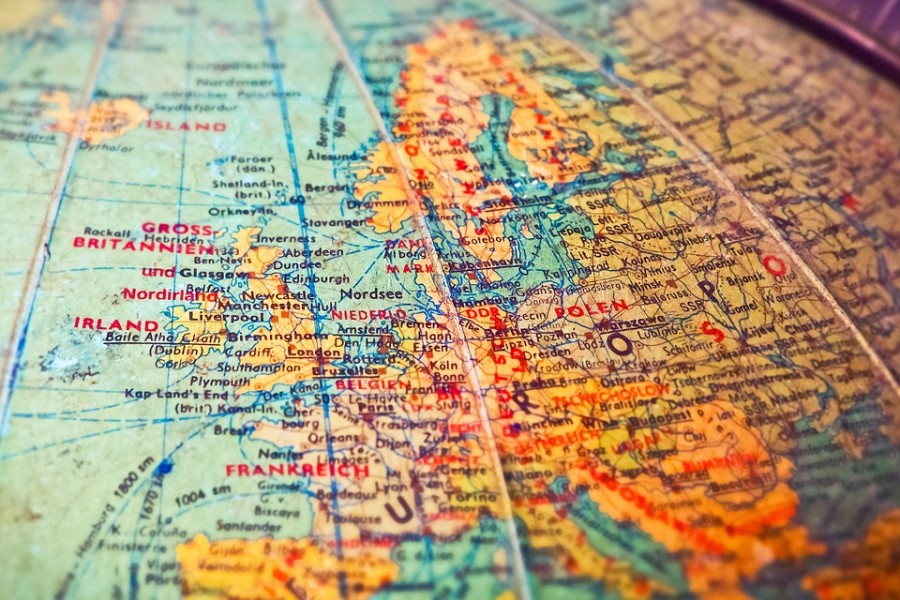
Published :
Updated :

The post-World War II era brought an end to the devastating battle of weapons, during which we witnessed the first destructive use of nuclear weapons.
The conclusion of this war appeared to be the beginning of a new world order, spawning the United Nations in the aftermath of the League of Nations' failure.
However, the nations' unity did not last long; instead, the nations made repeated attempts to establish distinct ideological rhetorics.
The start of the cold war, which many people refer to as the so-called third world war, was a battle for ideological supremacy.
The two frontline countries, the United States of America and Russia, implemented numerous strategies to expand the concepts of capitalism and communism, respectively. Although the two countries did not directly engage in large-scale combat, they sponsored and supported major regional conflicts against one another, which were later dubbed as ’Proxy Wars.’
Although there is little agreement on when the cold war began and ended, the period from 1947 to 1991 is generally considered.
The end of the cold war failed to generate many positive geopolitical incentives; rather, we discovered that more stakeholders entered the race. NATO member states, Japan and a few other countries with similar ideologies allied with the United States, while China and a few others allied with Russia.
In the academia of International Relations, the former bloc is frequently referred to as the Western bloc and the latter as the Eastern bloc. The difficulty for these two blocs is to compete with one another and establish their own ideological dominance. And the turmoil remained constant.
Almost every country involved in this political conflict and ideological race has its own set of problems to address, many of which have been criticised for a long period of time.
The irony is that they frequently avoid criticism and deny their own shortcomings while busy criticising others. As a result, the victim becomes a global citizen.
Nowadays, their primary concern is with the so-called 'Ideology,' regardless of whether it serves the citizens’ needs.
On that note, Nanjala Nyabola, a political analyst, wrote a fascinating statement about the failed political leadership that emerged in 2021, "2021 has reminded us that governance guided solely by ideology without regard for moral outcomes is a dangerous and deadly trap."
The ideological landscape of international political movements has been full of surprises in the last few years in the world political realm.
The appearance of Donald Trump as the party's nominee and then as president of the United States demonstrated the triumph of extremist ideologies in global politics.
Over the last few years, we've also seen a steady rise in populism and nationalism in European countries. In their most recent elections, more than a quarter of Europeans voted populist. The idea is spreading from Europe to Asia as well.
However, the problem is not only the ideology but also it is the mindset of world leaders who use it as a weapon to govern in a way that serves only their own interests.
Multi-dimensional approaches have been taken by member states in collaboration with international development organisations in order to achieve the Sustainable Development Goals 2030.
The emergence of Covid-19, on the other hand, is a significant threat to the stability of the last two years' development progress. Despite the fact that people are losing their jobs, wealth and, most importantly, their lives in the midst of a crisis, ideological mockery continues between countries.
The global pandemic was not enough to teach world leaders that they needed to put their ideological differences aside and work together to move forward.
For instance, tensions are rising along the Ukraine-Russia border, the humanitarian crisis in Taliban-led Afghanistan is at an all-time high, the Mediterranean Sea remains a watery grave for thousands of people and Uighur people in China continue to struggle in the so-called detention camp.
Furthermore, the climate crisis continues to be a devastating crisis with no clear path to resolution.
Neither the United States' capitalism nor China's communism was able to provide a meaningful response to the pandemic's negative effects. Rather, both have played a significant role in widening income disparities around the world.
Other countries are simply joining them in exacerbating the problem. In such a scenario, world leaders are required to think beyond their ideological commitment to the common good.
Global issues are called global not because it looks chaotic; rather it adversely affects the world order as a whole.
Global pandemic explores the undeniable fact that concerning areas are very similar in every corner of the earth.
We cannot expect world leaders to collaborate without taking their ideological backgrounds into account; what we can do is persuade them to find a solution within the confines of ideological differences.
The author is a research assistant at the Center for Governance Studies.
sayemchowdhury38@gmail.com


 For all latest news, follow The Financial Express Google News channel.
For all latest news, follow The Financial Express Google News channel.